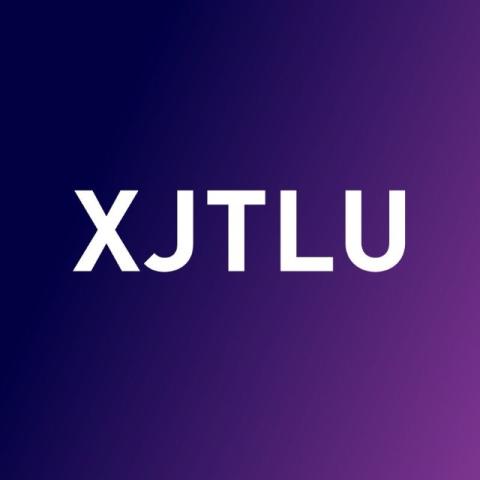
Meaning making: how universities can boost the uptake of edtech among faculty
You may also like
For decades, technology has been expected to drive fundamental change in education. Yet despite advances in available tech, higher education has yet to capitalise on its potential. Even since Covid-19 forced universities around the world to embrace online and blended teaching supported by virtual learning environments (VLEs) and other tools, many question whether this “new normal” should stay or if we should revert to a lower-tech pre-pandemic approach.
This prompted us to reflect on how instructional technology can leverage educational traditions for sustainable progress and innovation in education. We used Xi’an Jiaotong-Liverpool University as an example and looked at 13 years of data about the use of educational technologies.
From 2006 to 2019, the university implemented 65 VLE-based educational innovations. We analysed 19 of the 65, which had a strong technological component and were used in a formal credit course. Of these, only tools covering these four areas became regular parts of the VLE toolbox: attendance, assignments, questionnaires and forums.
- The online attendance tool enables students to scan a QR code on their phone to record their arrival to class
- Assignment technology allows students to submit a digital copy of their coursework and receive online feedback
- Using the online questionnaire, students can submit course-level learning experience feedback
- The forum supports students and teachers to post, share and discuss ideas with their classmates in one place.
We set out to find out what made these four successful while others fell by the wayside and found that the technologies that failed lacked an important component – meaning. A key step to the adoption and sustained use of a new technology is what we call “meaning making”, whereby the purpose and benefits of the technology are made clear.
Online forums, attendance technology, digital questionnaires and assignments all gained wide, sustained use because they were clearly useful and meaningful to educators and students.
- It may be time to rethink the ‘edtech adoption curve’
- Failing fast: what universities need to consider when adopting edtech
- University-edtech collaboration: how to leverage the best of both worlds
For example, the online forum saw extremely high use – approximately 100 per cent in its first two years. In the subsequent 10 years, it was used by more than 50 per cent of classes, and the university created a framework to codify the practice of using online forums for effective social constructivism learning.
Based on our research, here are some practical tips for effective “meaning-making”:
1. Plan for time
Teachers need a reason to give up institutionalised habits and adopt new technology, and this can take time. University managers and leaders should consider the required time cost when planning technological implementation and pedagogical development across the campus. If an educational innovation is meaningful but is being adopted slowly, university policymakers should consider providing resources and support as part of their long-term strategy, such as institutional funds to develop communities of practice and innovation awards.
2. Not everyone has to agree
Collective consensus is not the only way to achieve a 50 per cent usage rate; not everyone has the same reason for adopting an edtech tool. For example, we have teachers who used the online attendance tool for the purpose of encouraging student engagement, whereas others collected the attendance data for research.
Universities should support open communication and idea-sharing between colleagues by nurturing:
- strong communities of practice, for example, informal lunch catch-ups with groups of colleagues who share similar interests
- supportive spaces, such as classrooms equipped with new technologies for the pilot experiments
- advice repositories such as online message walls, podcast interviews, case study blogs and video showcases so educators can share how they use and benefit from the new tools without fear of judgement.
3. Reward hard-working teachers
It is challenging for educators who have a heavy teaching workload and research pressure to learn new technologies. They must then design learning activities that make use of these technologies, adapt curricula to bring in innovative teaching practices and keep reflecting on and making improvements in diffusing these educational innovations.
Universities should reward hard-working teachers who do engage in this work with concrete bonuses, promotion and funding, or other appropriate benefits, such as recognition, awards and accreditation. Celebrating and promoting innovation helps drive positive educational change in a sustainable manner.
Our study shows the importance of “meaning-making” as a gatekeeper for successful adoption of technology and educational innovation. The need for meaning-making echoes Confucius’ philosophy, which emphasises the importance of acting by knowing why.
- This advice is based on the study “Meaning-making in virtual learning environment enabled educational innovations: a 13-year longitudinal case study”, co-authored by Na Li, Xiaojun Zhang, Maria Limniou and Youmin Xi.
Na Li is associate professor in the Academy of Future Education at Xi’an Jiaotong-Liverpool University; Xiaojun Zhang is senior associate professor, executive dean of the Academy of Future Education, and acting dean of the Entrepreneurship and Enterprise Hub at XJTLU Entrepreneur College at Xi’an Jiaotong-Liverpool University; Maria Limniou is senior lecturer in digital education and innovation at the University of Liverpool; Youmin Xi is executive president of Xi’an Jiaotong-Liverpool University and pro vice-chancellor of the University of Liverpool.
If you found this interesting and want advice and insight from academics and university staff delivered direct to your inbox each week, sign up for the THE Campus newsletter.




